Navigating the Beauty Counter: A Guide to Makeup Safety During Pregnancy
Related Articles: Navigating the Beauty Counter: A Guide to Makeup Safety During Pregnancy
Introduction
With enthusiasm, let’s navigate through the intriguing topic related to Navigating the Beauty Counter: A Guide to Makeup Safety During Pregnancy. Let’s weave interesting information and offer fresh perspectives to the readers.
Table of Content
Navigating the Beauty Counter: A Guide to Makeup Safety During Pregnancy

Pregnancy is a transformative period, bringing with it a plethora of physical and emotional changes. While many women embrace the radiant glow associated with pregnancy, others might feel the need to enhance their natural beauty with makeup. However, concerns about the safety of certain ingredients during pregnancy are understandably paramount. This comprehensive guide aims to provide clarity and reassurance regarding the use of makeup during pregnancy, focusing on products that are generally considered safe and highlighting the factors to consider when making informed choices.
Understanding the Potential Risks
While the vast majority of cosmetics are safe for use during pregnancy, certain ingredients are known to pose potential risks to both the mother and the developing fetus. These ingredients can be absorbed through the skin and enter the bloodstream, potentially affecting the baby’s health. The most common concerns revolve around:
- Retinoids: These vitamin A derivatives, often found in anti-aging products, are known to cause birth defects when taken orally. Topical application during pregnancy is generally considered safe, but caution is advised, particularly in the first trimester.
- Hydroquinone: This skin-lightening agent has been linked to potential developmental issues in infants. It’s best to avoid products containing hydroquinone during pregnancy.
- Parabens: These preservatives are widely used in cosmetics to prevent bacterial growth. While some studies have linked parabens to hormonal disruption, the evidence is inconclusive and the potential risks during pregnancy remain unclear. However, choosing products free of parabens as a precautionary measure may be a prudent approach.
- Phthalates: These chemicals, often found in fragrances and nail polish, are linked to developmental issues in boys. While the evidence is not definitive, it’s best to minimize exposure to phthalates during pregnancy.
- Formaldehyde: This ingredient, commonly used in nail polish and hair products, can be irritating to the skin and potentially harmful during pregnancy. It’s best to opt for products free of formaldehyde or formaldehyde-releasing agents.
Choosing Safe and Effective Makeup
Fortunately, a wide array of safe and effective makeup options are available for pregnant women. The key is to be informed and prioritize products that minimize exposure to potentially harmful ingredients. Here are some tips for navigating the beauty counter:
- Read the label carefully: Pay close attention to the ingredient list and avoid products containing the ingredients mentioned above.
- Look for "organic" or "natural" labels: These labels often indicate products that are free of synthetic chemicals and parabens. However, it’s crucial to note that these labels are not regulated, so further research may be necessary.
- Opt for mineral makeup: Mineral makeup is generally considered safe during pregnancy as it contains natural ingredients like iron oxides, titanium dioxide, and zinc oxide. These ingredients provide color and coverage while being gentle on the skin.
- Choose hypoallergenic and fragrance-free products: These products are less likely to cause irritation or allergic reactions, which can be more common during pregnancy.
- Talk to your doctor or a dermatologist: They can provide personalized advice based on your individual needs and concerns.
Specific Makeup Categories and Safe Choices
Let’s delve into specific makeup categories and explore safe options for each:
Foundation:
- Mineral foundation: This is a good choice for sensitive skin as it’s free of many potential irritants.
- Liquid foundation: Choose products with natural ingredients and avoid those containing retinoids, hydroquinone, and parabens.
- Tinted moisturizer: This provides light coverage and hydration, making it suitable for everyday use.
Concealer:
- Mineral concealer: This provides good coverage and is gentle on the skin.
- Cream concealer: Opt for products with natural ingredients and avoid those containing retinoids, hydroquinone, and parabens.
Powder:
- Mineral powder: This is a good choice for setting foundation and controlling shine.
- Loose powder: Choose products with natural ingredients and avoid those containing retinoids, hydroquinone, and parabens.
Blush:
- Cream blush: This is easy to apply and gives a natural-looking flush.
- Powder blush: Choose products with natural ingredients and avoid those containing retinoids, hydroquinone, and parabens.
Eyeshadow:
- Mineral eyeshadow: This is generally safe and provides a range of colors.
- Cream eyeshadow: Opt for products with natural ingredients and avoid those containing retinoids, hydroquinone, and parabens.
Eyeliner:
- Liquid eyeliner: Choose products with natural ingredients and avoid those containing retinoids, hydroquinone, and parabens.
- Pencil eyeliner: This is a good choice for everyday use and is less likely to cause irritation.
Mascara:
- Natural mascara: This is made with natural ingredients and is free of harsh chemicals.
- Waterproof mascara: Choose products that are specifically designed for sensitive eyes and avoid those containing formaldehyde.
Lipstick and Lip Gloss:
- Natural lipstick: This is made with natural ingredients and is free of harsh chemicals.
- Lip gloss: Choose products with natural ingredients and avoid those containing phthalates.
Nail Polish:
- Natural nail polish: This is made with natural ingredients and is free of formaldehyde and phthalates.
- Gel polish: While gel polish is generally considered safe during pregnancy, it’s best to avoid frequent use as the UV lamp used for curing can potentially damage the skin.
FAQs about Makeup Safety During Pregnancy
Q: Is it safe to use makeup during pregnancy?
A: Yes, most makeup is safe for use during pregnancy. However, it’s important to be aware of certain ingredients that may pose potential risks and to choose products that minimize exposure to these ingredients.
Q: Are there any specific ingredients to avoid during pregnancy?
A: Yes, certain ingredients are known to pose potential risks during pregnancy. These include retinoids, hydroquinone, parabens, phthalates, and formaldehyde.
Q: Is it safe to use self-tanner during pregnancy?
A: Some self-tanners contain ingredients that are not recommended for use during pregnancy. It’s best to consult with your doctor or a dermatologist before using any self-tanner.
Q: Can I use eyelash extensions during pregnancy?
A: While eyelash extensions are generally safe, the glue used to apply them can sometimes cause irritation or allergic reactions. It’s best to consult with a qualified technician and to avoid using extensions if you have any sensitivities.
Q: Is it safe to get a manicure or pedicure during pregnancy?
A: Getting a manicure or pedicure is generally safe during pregnancy. However, it’s important to choose a salon that uses safe and non-toxic products and to avoid using polish containing formaldehyde or phthalates.
Tips for Using Makeup Safely During Pregnancy
- Start with a clean face: Wash your face thoroughly with a gentle cleanser before applying makeup.
- Use a primer: This helps to create a smooth canvas for makeup and can help to prevent it from settling into fine lines.
- Apply makeup sparingly: It’s best to avoid heavy makeup during pregnancy, as it can clog pores and irritate sensitive skin.
- Remove makeup thoroughly before bedtime: This helps to prevent breakouts and irritation.
- Keep your makeup brushes clean: Dirty brushes can harbor bacteria and cause infections.
Conclusion
Navigating the world of makeup during pregnancy can be a delicate balancing act. By understanding the potential risks and making informed choices, pregnant women can enhance their natural beauty while ensuring the safety of both themselves and their developing baby. Remember, the key is to prioritize products with natural ingredients, avoid potentially harmful chemicals, and consult with healthcare professionals for personalized advice. With a little research and careful consideration, you can enjoy a radiant glow throughout your pregnancy without compromising your health or the health of your little one.
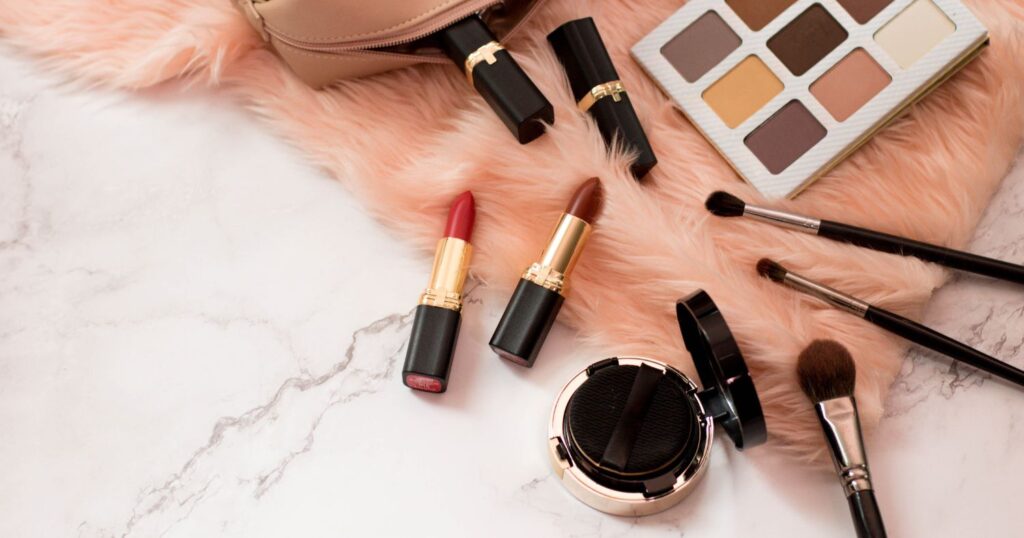

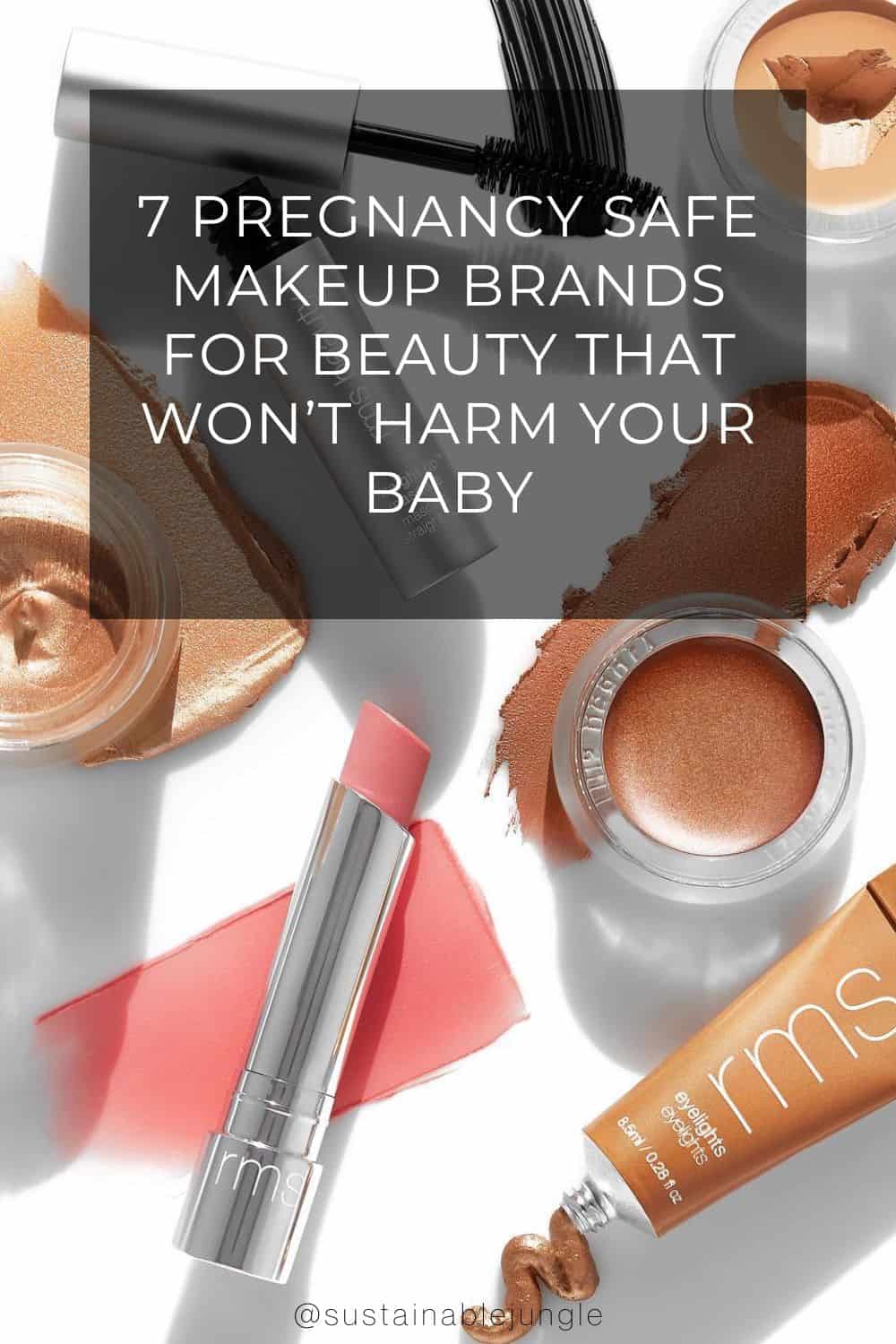

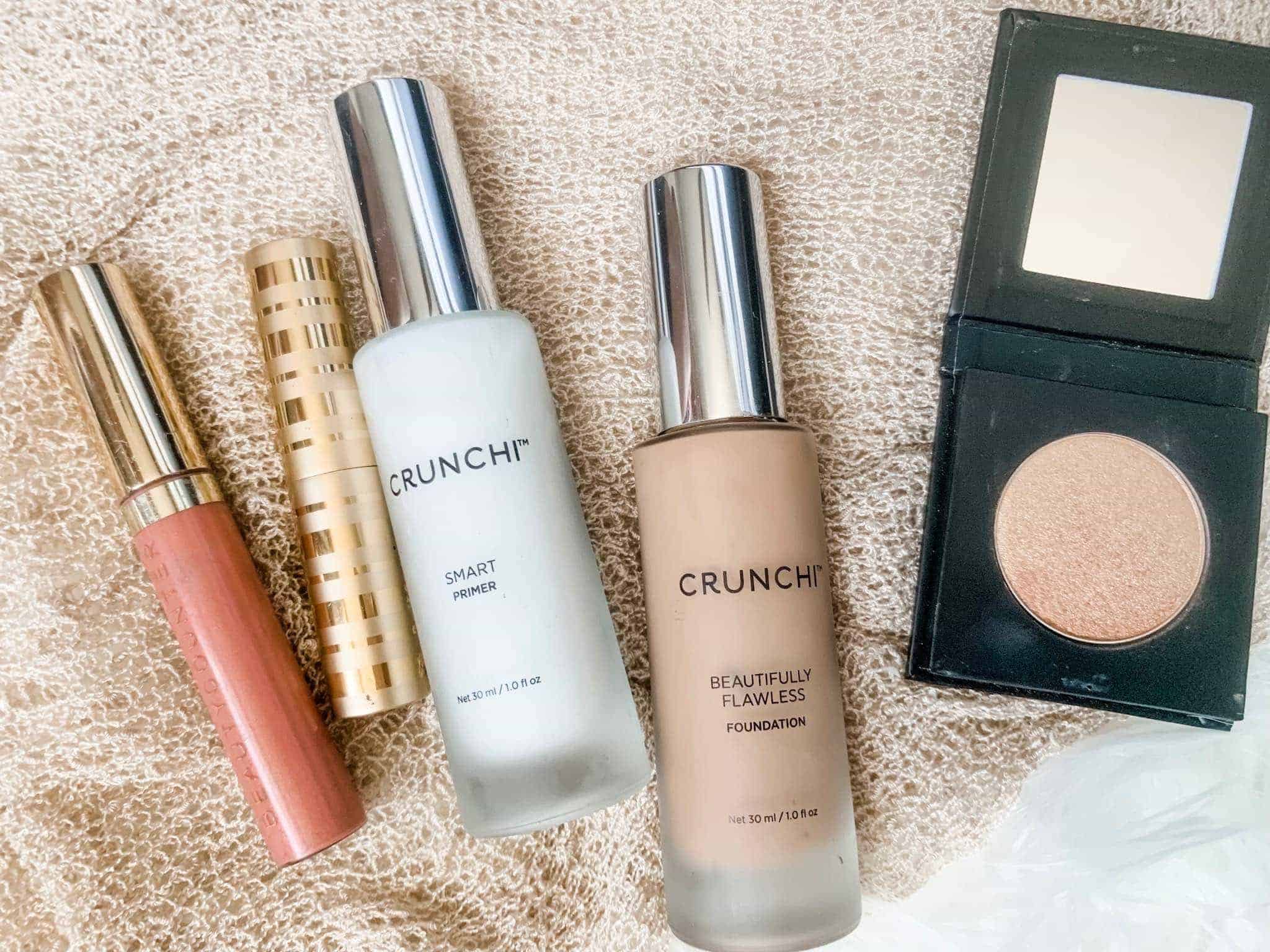
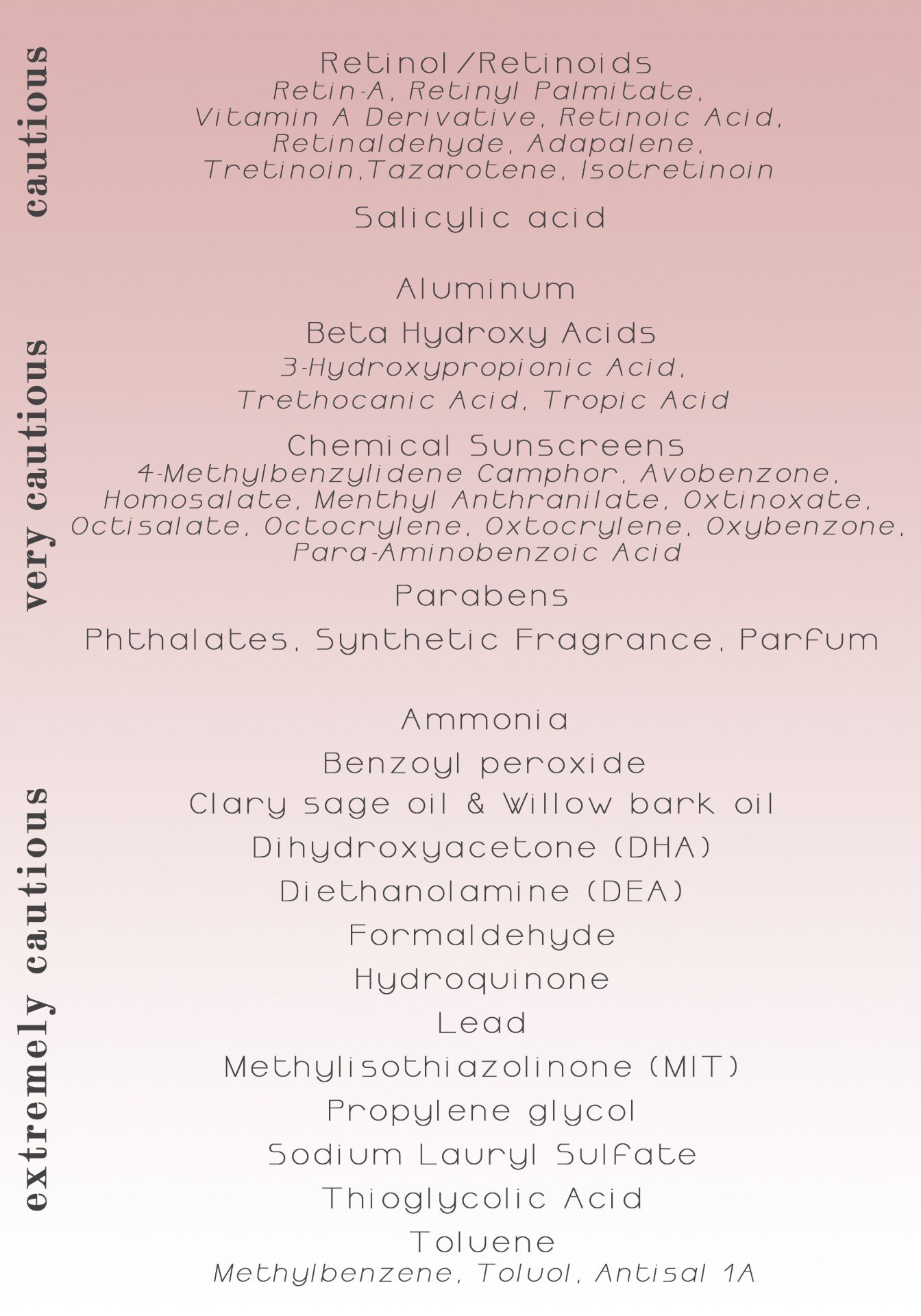

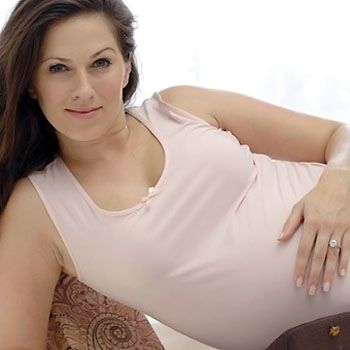
Closure
Thus, we hope this article has provided valuable insights into Navigating the Beauty Counter: A Guide to Makeup Safety During Pregnancy. We thank you for taking the time to read this article. See you in our next article!